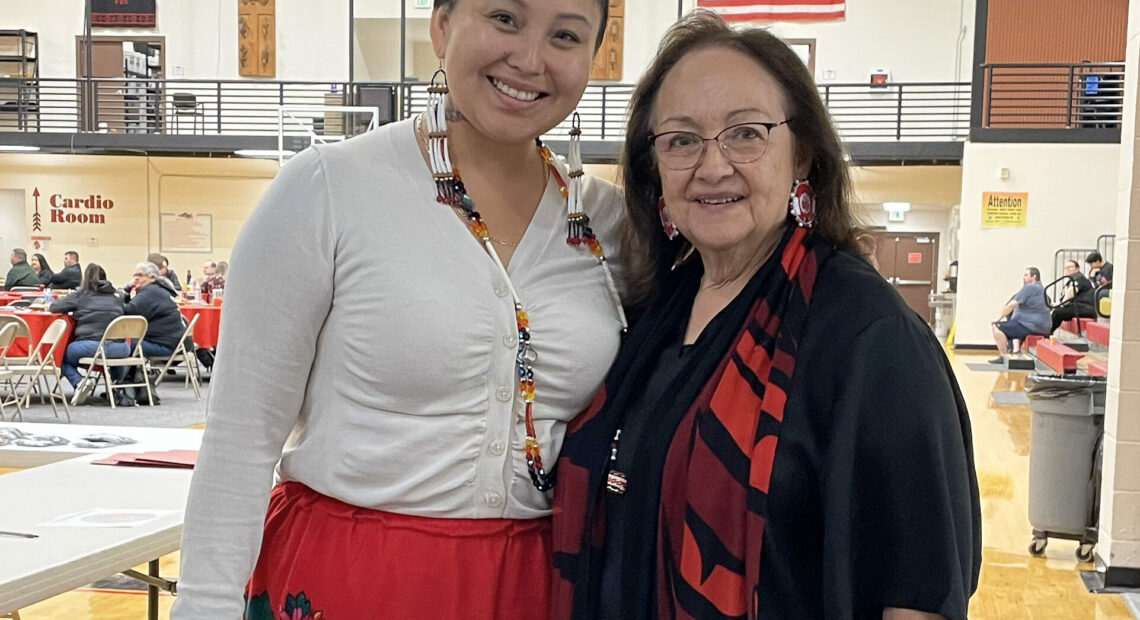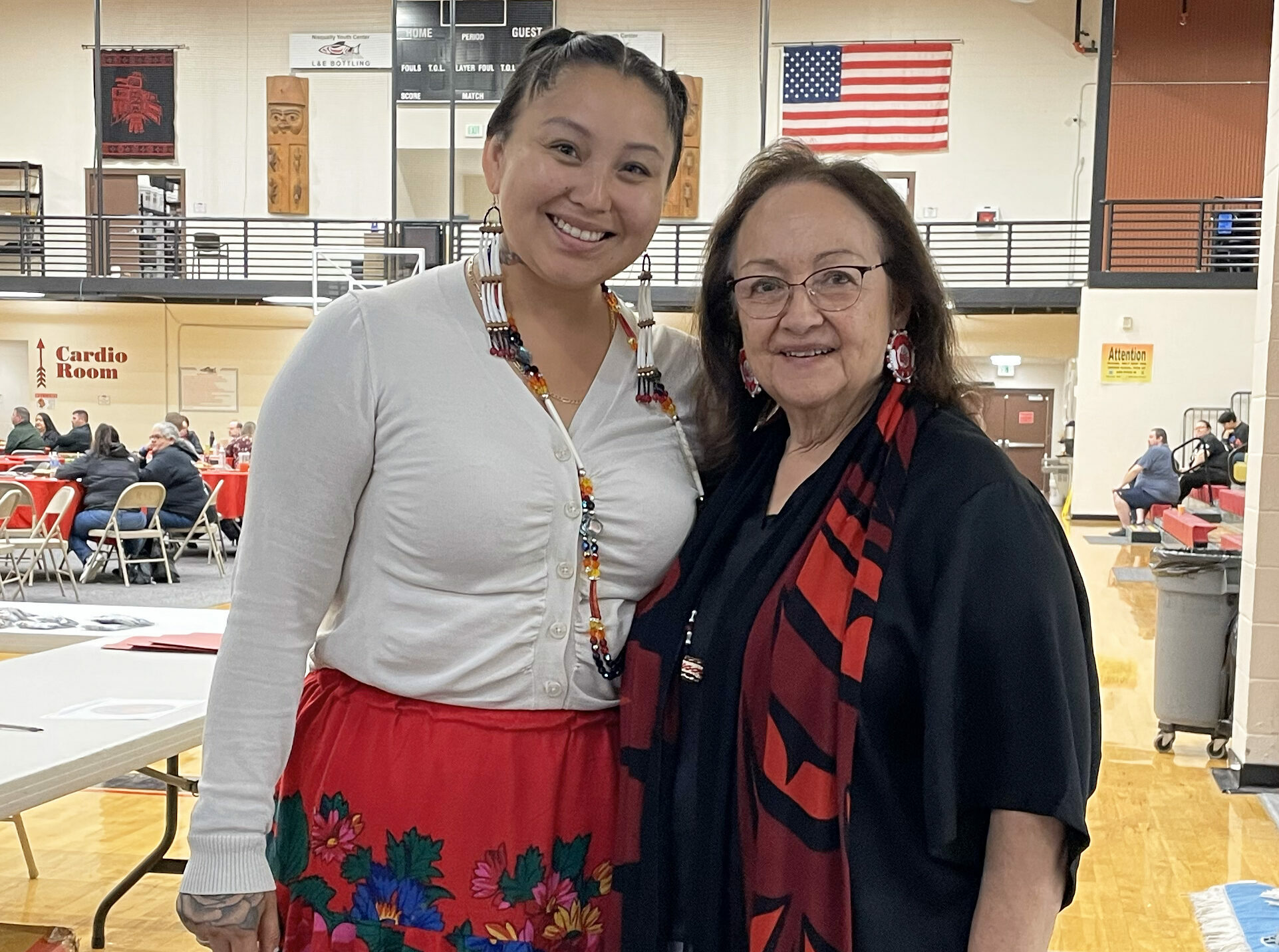
Nisqually Tribe’s sovereignty summit focuses on MMIWP crisis
Listen
(Runtime 0:56)
Read
Washington state has one of the largest numbers of missing and murdered Indigenous peoples cases in the nation.
On May 4, the Nisqually Indian Tribe’s annual Protecting Our Sovereignty Tribal Summit focused on the Missing and Murdered Indigenous People (MMIP) crisis.
“Protecting our sovereignty isn’t just about protecting our rights to govern each other,” said Chay Squally, fifth council member of the Nisqually Indian Tribe. “It’s also about protecting our people, our women, our girls, even our men, the next seven generations, we have to protect everyone.”
Friday, May 5, is MMIP Awareness Day.
Recent legislation and partnerships with federal, state, local, and tribal entities to investigate cases aim to curtail the Missing and Murdered Indigenous Women and People crisis. MMIWP is a prevalent issue in Washington.
“Any Indigenous person you know is going through this right now. They have been through this, and they know even more people that are going through this, missing their relatives,” Squally said.
A 2018 report from the Urban Indian Health Institute collected data from 71 urban cities and ranked Washington as having the second-highest number of known cases. The Government Accountability Office issued a report in 2021, showing the total number of these cases is unknown because of Indigenous peoples’ mistrust of law enforcement and a lack of clear reporting requirements. According to the Pierce County Missing & Murdered Indigenous People website, there are 19 missing Indigenous people from the county.
The recent legislation in the state, such as the alert system for missing Indigenous peoples and the establishment of a MMIWP cold case unit, is encouraging, Squally said.
“That really honors people like me who have gone through it and other families that are going through this. It’s amazing,” Squally said.
Advocates of the issues said legislation is a part of the work that must be done on the MMIWP crisis, as is awareness and reducing the stigma of women speaking about violence against them.
“I guess it just starts with people who aren’t afraid to speak up,” Squally said.
The council member was once in an abusive relationship and found it important to share her experiences to point out that violence and abuse is not okay.
“I guess, sharing our story more, sharing these violent stories, survival stories, is what is going to save our girls.” Squally said. “We have to call these abusers out, we have to share our experience.”
When Squally shared what happened to her, she faced pushback. At one point, she said she felt the need to share police reports that depicted graphic details about the abuse she experienced.
“I shared it because I felt like they’re not going to believe me until they see it,” Squally said.
That stigma is a common experience for victims of violence. Sarah Colleen Sotomish is the senior counsel on tribal relations for Pierce County and a citizen of the Quinault Nation. Sotomish experienced abuse as a child and was the victim of rape while in law school.
Sotomish decided to pursue prosecution because she said she wanted to help the next generation.
There is a continuum of violence and abuse, including child abuse, sexual abuse, human trafficking, domestive violence and rape, she said. These facets all need to be addressed to break the cycle, and help victims.
“A lot of them may end up missing and murdered Indigenous women, people,” Sotomish said.
Sotomish said her first husband abused her, and eventually, one particularly traumatic experience caused her to leave and file for divorce.
“That is something I haven’t really talked about publicly,” Sotomish said. “I think it’s important that people hear our voices.”
She said she feels the attention to and work to stop this violence is getting stronger every day.
“We’re seeing entities, whether it’s the FBI, Department of Justice, counties, cities and tribes, getting together and saying, ‘We need to stop this. We all need to work together and stop it,’” Sotomish said. “I’m just glad that I can play a little part in it.”
The Violence Against Women Reauthorization Act in 2013 (VAWA) gave back to tribes the ability to exercise jurisdiction to prosecute, convict and sentence Native and non-Native perpetrators of domestic or intimate partner violence on Native reservations.
While she feels VAWA is a positive thing, she wants more resources, including more prosecutors for tribal courts and special investigators for tribal government.
“Resources are pretty slim, and sometimes that impedes justice,” Sotomish said.
The act ensured tribes no longer need federal approval for criminal jurisdiction over non-Indians. However, to prosecute non-Indian offenders, tribal governments must comply with VAWA statutory requirements.
Awareness of the MMIWP issue is crucial, like the alert system, which can allow people to stop something before it is too late, Sotomish said.
“I really don’t want my family, my friends, families, children and children’s children, to have to go through what I went through,” Sotomish said. “We need to all work together to stop it. Stop the violence.”
















